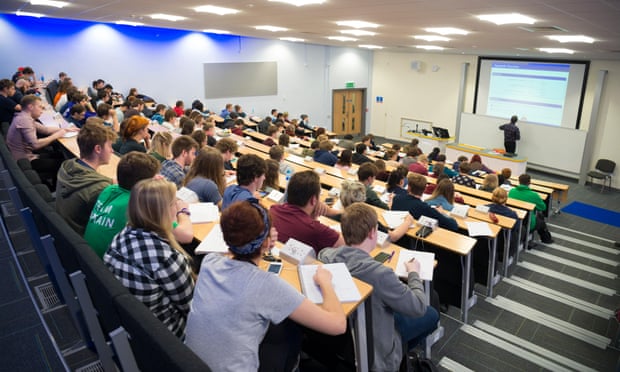Back in the days when higher education was mostly for the benefit of a select group of middle-class kids, I had a meeting with my school careers teacher, who asked me what I wanted to do in the future. When I told her I was thinking about furthering my studies and finding a job that involved writing, she declared that a suitable plan for me was to leave school at 16 and train to become a secretary. Apparently I didn't look like the sort of person who should attend university.
Over time I'd come to believe these attitudes belonged to the past – a bygone age of middle-class privilege now thankfully over. Now, though, it seems that thinking has become core government policy.
It seems to be more difficult than ever for young people to enter higher education. Graduates in England have the highest student debts in the developed world. They will leave institutions with nearly double the debt of their US counterparts, and three times the debt of the next highest in Europe. A commons committee this week found a wide gap in access between the most and least advantaged students, despite institutions' spending on access and widening participation schemes. It saw evidence that showed that poorer students were hit hardest by the system of student loans, and expressed concern at the drop in numbers of part-time and mature students. Thanks to the abolition of maintenance grants in 2015, the poorest students will pay on average £14,000 more in loans than better-off students. Once they emerge from their studies, on average they will have forked out a grand total of £57,000, according to the Institute of Fiscal Studies.
And universities themselves are facing unprecedented criticism. Since the summer, accusations have raged about a rise in the number of unconditional offers given out. The institutions have been blamed for a "bums on seats" mentality by the higher education minister Sam Gyimah, who appears to have forgotten that just four years ago the government lifted the cap on student numbers in an effort to marketise higher education. Then there have been exaggerated and often false claims about no-platforming and safe spaces.
